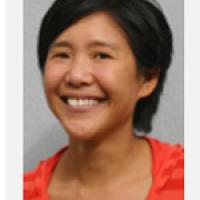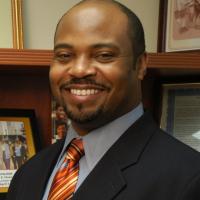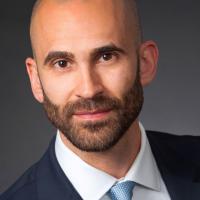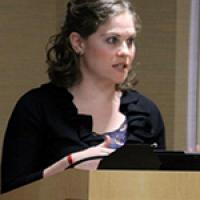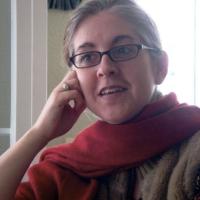Alumni
DrPH
Maria T. Chao, DrPH, MPA
Maria T. Chao, DrPH, MPA, is a UCSF assistant professor of medicine in the Division of General Internal Medicine at San Francisco General Hospital and core research faculty at the Osher Center for Integrative Medicine. Chao’s overarching research aim is to investigate how complementary and alternative medicine (CAM) can improve quality of life among underserved populations negatively impacted by health disparities. Her prior research evaluated how race/ethnicity and other social factors affect prevalence of, reasons for, and disclosure of CAM use. Her current research focuses on group-based models of CAM therapies for various chronic pain conditions. Chao is the principal investigator of two studies evaluating integrative medicine approaches for women’s health conditions. She recently received a National Institutes of Health K01 Career Development Award to develop, implement, and evaluate group-based acupuncture for painful diabetic neuropathy among underserved patients.

Craig S. Fryer, DrPH, MPH
Craig S. Fryer, DrPH, MPH, is an assistant professor in the Department of Behavioral and Community Health at the University of Maryland School of Public Health (SPH) and an associate director of the Maryland Center for Health Equity. Fryer utilizes mixed methods research to examine the sociocultural context of health and health disparities, with a concentration in community engaged research. His work focuses on racial and ethnic health disparities in substance use and dependence, specifically tobacco and marijuana use among urban youth and young adult populations. He is currently principal investigator of a five-year National Cancer Institute K01 grant that examines correlates of nicotine dependence and symptoms of withdrawal among urban, African American youth. Fryer earned his doctorate from the Mailman School of Public Health in May 2006.

PhD
Philip M. Alberti, PhD
As the Association of American Medical College’s (AAMC) Senior Director for Health Equity Research and Policy, Philip M. Alberti, PhD, supports the efforts of academic medical centers to build an evidence-base for effective programs, protocols, and partnerships to ameliorate inequalities in health and healthcare. Dr. Alberti is responsible for working with AAMC’s constituents to elevate the status of community-partnered and health equity-related research efforts, to identify emerging funding sources and policy implications for such projects, and to disseminate findings to achieve the broadest possible impact. Prior to joining the AAMC in 2012, Dr. Alberti led research, evaluation, and planning efforts for a Bureau within the New York City Department of Health and Mental Hygiene (NYC DOHMH) that promotes health equity between disadvantaged and advantaged neighborhoods. Dr. Alberti holds a PhD degree in Sociomedical Sciences from Columbia University’s Mailman School of Public Health and was a National Institute of Mental Health Fellow in the Psychiatric Epidemiology Training program.

Richard M. Carpiano, PhD, MA, MPH
Richard M. Carpiano, PhD, MA, MPH, is Professor of Sociology at the University of British Columbia, where he is also Associate Member of the School of Population and Public Health, Faculty Associate of the Peter Wall Institute for Advanced Studies, and Faculty Affiliate of the Human Early Learning Partnership (HELP). He is the incoming co-editor (with Brian Kelly of Purdue University) of the Journal of Health and Social Behavior (2016-19). Dr. Carpiano’s research examines the socioeconomic determinants of physical and mental health. A significant portion of his past and ongoing work has focused on the implications of community social ties for adult and child health. Most recently, he has undertaken several collaborative projects focused on social determinants of childhood vaccination in the US and Canada. His solo- and co-authored publications have appeared in forums such as the American Journal of Public Health, American Sociological Review, Health & Place, Journal of Health and Social Behavior, and Social Science & Medicine. In 2013, he was awarded UBC’s Killam Research Prize for his contributions to scholarship. Dr. Carpiano received his Ph.D. (2004) in Sociomedical Sciences (with concentration in Sociology) from Columbia University, his M.P.H. (2001) from Case Western Reserve University, and M.A. (1998) and B.A. (1997) in Sociology from Baylor University. From 2004-2006, he was a Robert Wood Johnson Foundation Health & Society Scholar at the University of Wisconsin-Madison.

Shao-Hua Liu, PhD
Shao-Hua Liu, PhD, is Associate Research Fellow at the Institute of Ethnology, Academia Sinica, Taiwan. Her book Passage to Manhood: Youth Migration, Heroin, and AIDS in Southwest China, published by Stanford University Press in 2011 and included in the Studies of the Weatherhead East Asian Institute of Columbia University series, examines how global modernity, heroin use, and HIV/AIDS are embodied in a new rite-of-passage among young men in the Sichuan province of southwestern China. Liu's broader portfolio of research uses diseases such as AIDS and leprosy and crises such as drug use to analyze the nature and trajectory of contemporary social change and health reform in China. Recently, she has been working on waterscape and water management in Taiwan.

Sara Lewis
Sara Lewis is the Elisabeth Luce Moore Postdoctoral Fellow in Religion, Medicine and Healing at Wellesley College. She specializes in mental health, culture and religion with a geographic focus on Tibet and the Himalayas. Her research appears in journals including Ethos, Culture, Medicine & Psychiatry, and Psychiatric Services. Dr. Lewis has won awards from the Society for Psychological Anthropology and the Society for the Study of Psychiatry and Culture, and currently chairs the Critical Anthropology for Global Health Special Interest Group of the Society for Medical Anthropology. Her book in progress, Spacious Minds: Trauma and Resilience Among Tibetan Exiles, explores how Buddhist notions of time and memory shape responses to trauma among Tibetans exposed to political violence. In addition to her research activities, Dr. Lewis has worked as a psychotherapist in community mental health in the areas of serious mental illness, mindfulness, and palliative care. She has degrees from St. Lawrence University (BA, 2003), The University of Chicago (A.M., 2005, 2007) and Columbia University (PhD, 2014). Before joining the faculty at Wellesley College, she was a Visiting Assistant Professor of Anthropology at the University of Oregon.

Rebecca Jordan-Young, PhD
Rebecca Jordan-Young, PhD, is Associate Professor of Women's, Gender, and Sexuality Studies at Barnard College, Columbia University. She is the author of Brain Storm: The Flaws In The Science Of Sex Differences (Harvard 2010), a widely-acclaimed book that takes on the science behind the idea that hormones “sex” the human brain. Internationally recognized for her work in critical science studies, Jordan-Young has lectured at more than 40 universities in nine countries. From 1987 through 2004, she worked on HIV/AIDS prevention, running street outreach programs for injectors and street-based sex workers, and conducting social epidemiology research. Current projects examine “gender verification” of elite female athletes, representation of steroid hormones in science education, and development of “best practice” guidelines for research on sex/gender in domains including neuroimaging and clinical medicine. Jordan-Young received a Guggenheim Fellowship and an American Council of Learned Societies fellowship in 2016 for her forthcoming book on testosterone, co-authored with Katrina Karkazis, an SMS MPH and Columbia anthro PhD.

Brian C. Kelly, PhD
Brian C. Kelly, PhD, is associate professor in the departments of Sociology and Anthropology at Purdue University. His areas of research interest include drug use, sexual health, HIV/AIDS, and youth cultures. His current research projects focus on prescription drug misuse and risk taking among young adults, methamphetamine abuse and HIV risk in China, neighborhood and network influences on HIV risk among gay men, club drug use among young adults, and health outcomes for adolescent girls in age discordant relationships. Kelly has received several grants from the National Institute on Drug Abuse to pursue this work.

Marian Moser Jones
Marian Moser Jones studies the sociohistorical evolution of the American public-private welfare state and the institutionalization of benevolence. Jones’ first book, The American Red Cross, from Clara Barton to the New Deal, was published in early 2013 by Johns Hopkins University Press. An assistant professor at the University of Maryland School of Public Health in the Department of Family Science, Jones currently teaches courses on the human services and Maternal and Child Health, with a focus on their broad sociohistorical context. She has previously served as a Stetten postdoctoral fellow at the National Institutes of Health and an assistant professor at Virginia Commonwealth University’s Science, Technology, and Society Program. Jones received PhD and MPH degrees in Sociomedical Sciences from Columbia University and her AB from Harvard College.

Alicia Peters, PhD
Alicia Peters, PhD, is Associate Professor of anthropology and affiliated faculty in the Women's and Gender Studies Program at the University of New England. Her research examines how cultural understandings of gender and sexuality influence conceptions of human trafficking and the implementation of U.S. anti-trafficking law and policy. She is the author of the book, Responding to Human Trafficking: Sex, Gender, and Culture in the Law, published by the University of Pennsylvania Press as part of the Pennsylvania Studies in Human Rights series. Her research has been supported by grants from Wenner-Gren, the National Science Foundation, and the National Institute of Justice. Peters earned a BA from Wellesley College before earning her PhD in Sociomedical Sciences.

Siri Suh, PhD, MPH
Siri Suh, PhD, MPH, is Assistant Professor in Gender, Women and Sexuality Studies and Global Studies at the University of Minnesota. Her research specializations include global maternal and reproductive health, population and development, and feminist studies of technology, medicine, and science, with a geographic focus on West Africa. She earned her PhD and MPH from Columbia University and her BA in Sociology from the University of California at Berkeley. Suh’s book in progress, Obstetric Ambiguities: Reproductive Governance, Evidence, and Global Abortion Politics in Senegal, explores how US anti-abortion population policies regarding post-abortion care exacerbate reproductive health inequalities among young and low-income Senegalese women. Her work has been funded by the National Institutes of Child Health and Human Development, the Social Science Research Council, and the American Council of Learned Societies. Suh has conducted research with the Guttmacher Institute, Global Doctors for Choice, the United Nations Population Fund (UNFPA), and Management Sciences for Health (MSH). In her next project, Dr. Suh will examine how the introduction of Misoprostol to private pharmacies has transformed the professional, political, technological, and experiential landscapes of abortion care in Senegal.

Read more alumni profiles from the Social Forces newsletter.
